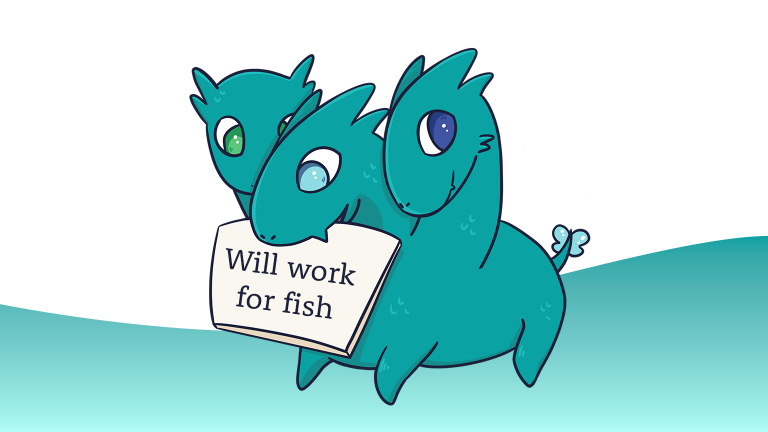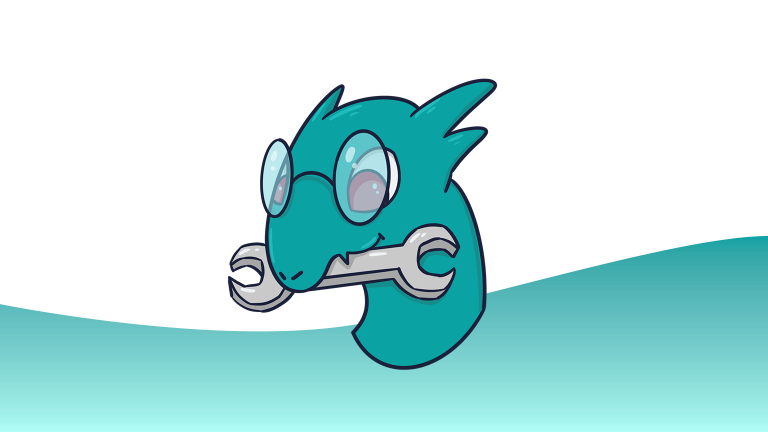Red Flags to Watch Out for When Interviewing with a Game Studio
The process of looking for a new job in the games industry can be gruelling. Unless you’ve been lucky enough to make a name for yourself in the industry, the chances are that you will have to deal with rejections, promising leads that trail off and go nowhere, and of course, lots of interviews.
Depending on the position and the size of the studio you are interviewing with, you may have to go through several interviews with everyone from a HR representative, to department heads and even studio executives. All of those discussions allow your interviewers to assess you and decide if you’re a good fit for the position, but it also gives you an opportunity to assess them.
At the end of the day, you need to be as comfortable accepting the job as they are offering it. That’s why you need to keep an eye out for any red flags that could point to possible issues down the road.
So, whether you just had an interview or you are about to have one, this article will help you identify some red flags which can serve as a warning that your potential employer might not be offering you the dream job you are expecting.
Quick Note: Not all of the phrases and behaviors in the following article are sure signs that you shouldn’t take a job. We are just trying to point out what you should be aware of during the interview process. At the end of the day, you should use your own judgment to make the decision that’s best for you.
Red Flag 1 – Company Culture
Most game studios, when pushed, will be happy to talk about their values. Or, if they don’t have clearly defined values, their priorities, when it comes to keeping their staff happy but productive and managing their relationships with customers and stakeholders. Conversations like this can be a good way to gauge what kind of culture a company has and whether it would be a good fit for you.
The problem, however, is that values only mean something if they are put into practice. Because of this, you might need to read between the lines a little to figure out if your interviewer is ‘all talk’ or not. One of the main things to look out for is if the interviewer does not bring up the company’s values or culture unprompted. Or worse yet, if they are unwilling to talk about them at all.
Phrases to look out for:
- “Everybody here goes the extra mile.” – You may be expected to work unpaid overtime.
- “We work hard and play hard.” – You will spend all your time here.
- “Everyone here is an A level performer.” – We respect hard work over other qualities.
What to do if you see this red flag:
Try to figure out if there is really something to worry about or if the person interviewing you just doesn’t have a good grip on the company’s culture. These statements are not bad in and of themselves. Sometimes, “We work hard and play hard,” means just that. However, sometimes it means, “We have free snacks and gaming consoles because you will be spending all your time here.”
If it hasn’t already been brought up, you can ask what the company’s values are and if the interviewer is open to talking about them, you can even go so far as asking for an example of when those values have impacted the studio’s decisions or strategy in a major way.
Another way of trying to zero in on whether there is a culture issue at the company is to ask someone who has or still is working there. Although make sure the questions come in the form of a conversation, not an interrogation.
Red Flag 2 – The Interviewer Has a Negative Attitude
If your interviewer seems bored, uninteresting, or actively hostile during your interview, that is a huge red flag. It could mean that they don’t think you are right for the role which would be unfortunate, but it might also point to a deeper issue. It could also mean that the interviewer does not believe the position you are applying for is necessary or worth their attention, which could lead to massive problems down the line if you do end up getting the job. Worse even than that, they may take a similar attitude during all interviews which means they are not giving the hiring process the care and attention it deserves.
The second type of negative attitude to look out for during an interview is aggression. Most people don’t need to be told not to take a job if your interviewer acts like the drill instructor from Full Metal Jacket. But in reality, it won’t be that obvious.
Something to be aware of is an interviewer who gets aggressive when you broach the topic of pay, or you start making reasonable requests during contract negotiations. If their primary negotiating tactic is to try and strong-arm you through aggression, this is a red flag waving over a field of doom. This behavior may indicate that they see the employee-employer relationship as adversarial.
Phrases to look out for:
- “In the end, we will hire whoever costs the least” – We do not value experience or talent.
- You would be lucky to have the job.” – We do not value you.
What to do if you see this red flag:
Honestly, this is the closest I would get to advising you to cut and run. Especially if the person interviewing you is going to be your direct report. That being said, it’s always a good idea to try and find out the source of the hostility. If an interviewer gets agitated when the question of pay comes up, maybe it’s because he has been given a tight budget and he has no more money to offer. If that’s the case, maybe you can negotiate on other points such as working one less day per-week or working from home part of the time.
The above statements may also indicate that the company values cost over quality, and from an employee relations perspective that is a big problem in and of itself.
And of course, there is always the chance you caught your interviewer on a bad day. If none of the same attitudes present themselves in later interactions then you might be able to chalk it up to stress or fatigue. Just remember not to hassle them before their morning coffee in the future, if you do end up taking the job.
Red Flag 3 – Excessive Use of Jargon
Sometimes an interviewer might slip into pitch mode where they try selling you on themselves or their company. This might be in a response to a question or they might just be excited for you to buy in on their vision. There is nothing wrong with this. One thing that I would look out for, though, if this does happen, is excessive use of jargon or industry buzzwords.
There will always be some level of inside baseball shop talk between professionals from the same industry. But if the interviewer is just throwing around buzzwords without seeming to understand what they mean, or maybe as an attempt to confuse you, that’s not a good sign. Also, if they throw around a term like for example, machine learning, but are unable or unwilling to elaborate when you question them about it. I would be worried.
Phrases to look out for:
- “We make data-driven strategic choices at both the product and market level.” – I think that talking like this makes me sound smart.
- “Our plan is to crowdfund development by upselling early access microtransactions” – We are good at using technology to justify our bad decisions.
What to do if you see this red flag:
There seems to be a segment of people out there who think that if they use enough ‘heavy weight’ terms that you will just get confused and not ask questions so you don’t seem dumb. They feel this way because it often works. But ask the questions anyway and try to figure out if the person you are talking with knows what they are talking about.
Try to break through noise by asking probing questions about anything that doesn’t make sense. Questions like “Why did you chose X over Y?” and “How are you planning to implement Z.” If the answers, they give don’t make sense then figure out if they will be the person responsible for authorizing all this stuff, and then decide if you’re up to the challenge of changing their mind about it.
Red Flag 4 – Quality of Previous Releases
Not every studio can release hit after hit and even beloved studios often have bumpy launches in their past. That being said, it is worth looking at past releases, particularly the last couple, to see if there are any worrying patterns to be seen. If the studio you are interviewing for has a history of long delays, or releases that require early patches to get to a playable state, it could be a sign of organizational issues or a signal that they have a history of crunching (or may resort to it in the future).
Past launches alone probably won’t be enough to tell you if you want to work at a studio, but it should give you an idea of the kinds of questions to ask in your interview, and if the answers to those questions aren’t reassuring enough, you could well have a red flag on your hands.
Phrases to look out for:
- “We had to release a day one patch.” – We planned poorly so we were fixing our mistakes until the last possible second.
- “We had to do everything in our power to get that game out the door on time.” – We crunched, hard.
What to do if you see this red flag:
Try to identify why past releases were troubled and if that root cause is still present. Things like poor project management, issues with funding, and high staff turnover can all major issue that you will have to deal with if you decide to take the job.
Red Flag 5 – Short Cuts and Corner-Cutting
When talking about the project you will be working on. It is important to be aware of signs that the person in charge of that project is prone to taking shortcuts, or is unaware of the realities of game development.
For example, anyone who says “We make sure to do things right the first time,” or “We don’t like to build prototypes” is displaying a level of arrogance or ignorance that is alarming.
This is maybe our biggest red flag for interviewing in the games industry. The idea that a game studio can circumvent the iterative process for game development is a fallacy we have seen play out multiple times. There is no level of pre-production or planning that is a substitute for making, testing, and iterating. So when an exec or director at a company says “We just don’t have the time to do things two or three times.” your first thought should probably be “Then you don’t have the time to make a good game.” It’s okay to cut things that aren’t working out, or not get around to iterating on something and deciding the cost is too high so you’ll keep what you have. But believing you can do things perfectly the first time is, well, dumb.
Phrases to look out for:
- “We make sure to do things right the first time.” – We do not understand the realities of game development.
- “We don’t like to build prototypes.” – We would prefer to deal with foundational issues at the end of our development process, rather than the beginning.
- “We just don’t have the time to do things two or three times.” – We have an unrealistic timeline and/or budget.
What to do if you see this red flag:
This red flag can absolutely sink a project so you need to be careful when you identify it. As with the jargon red flag, you need to clear about whether the person making these claims is the same person who is responsible for enforcing them. If they are, then I would carefully probe to find out how open they are to debate or persuasion on the topic.
If there is room for movement on the topic, you need to make the decision if you’re going to walk away or not. If you don’t, you need to accept the job with your eyes wide open that there will very likely be a bumpy road ahead.
We know it can be difficult to turn down a job or to be direct with your requirements during an interview. Especially if it’s your first job in the industry. All we can say is that you need to have respect for yourself if you expect anyone else to. And you’ll kick yourself if you end up miserable, working somewhere you hate, knowing that you saw the warning signs and ignored them.
Learning to know when to walk away from a job is is an ongoing process and it’ll always be a difficult decision. We hope we made it a little easier. Good luck!






